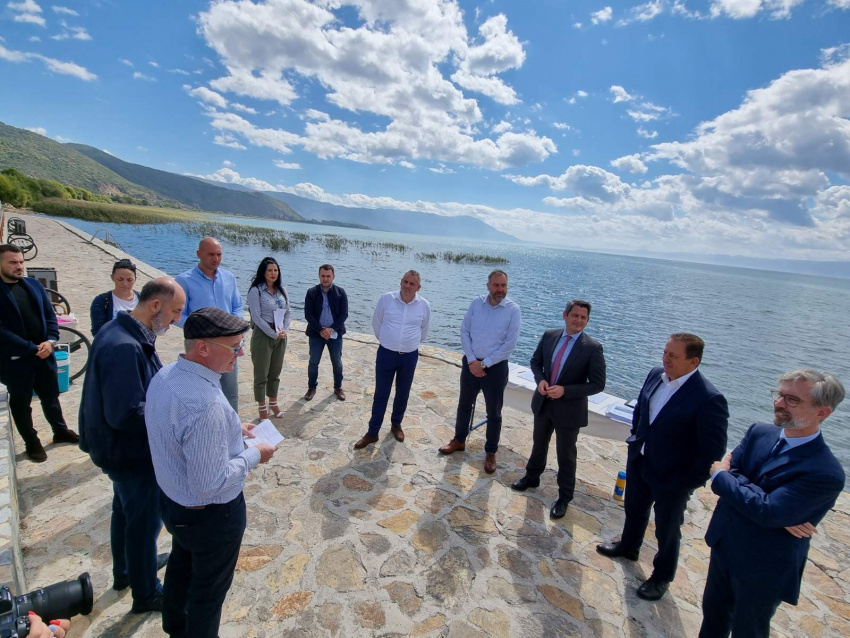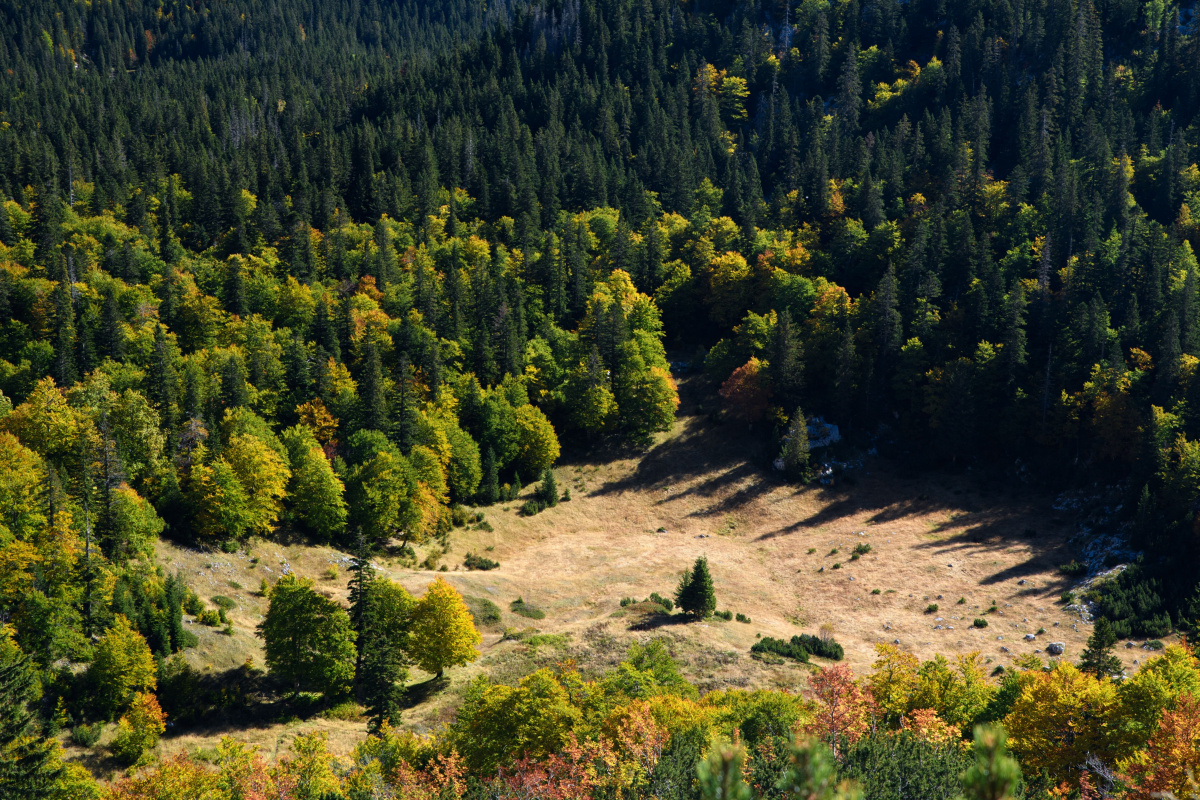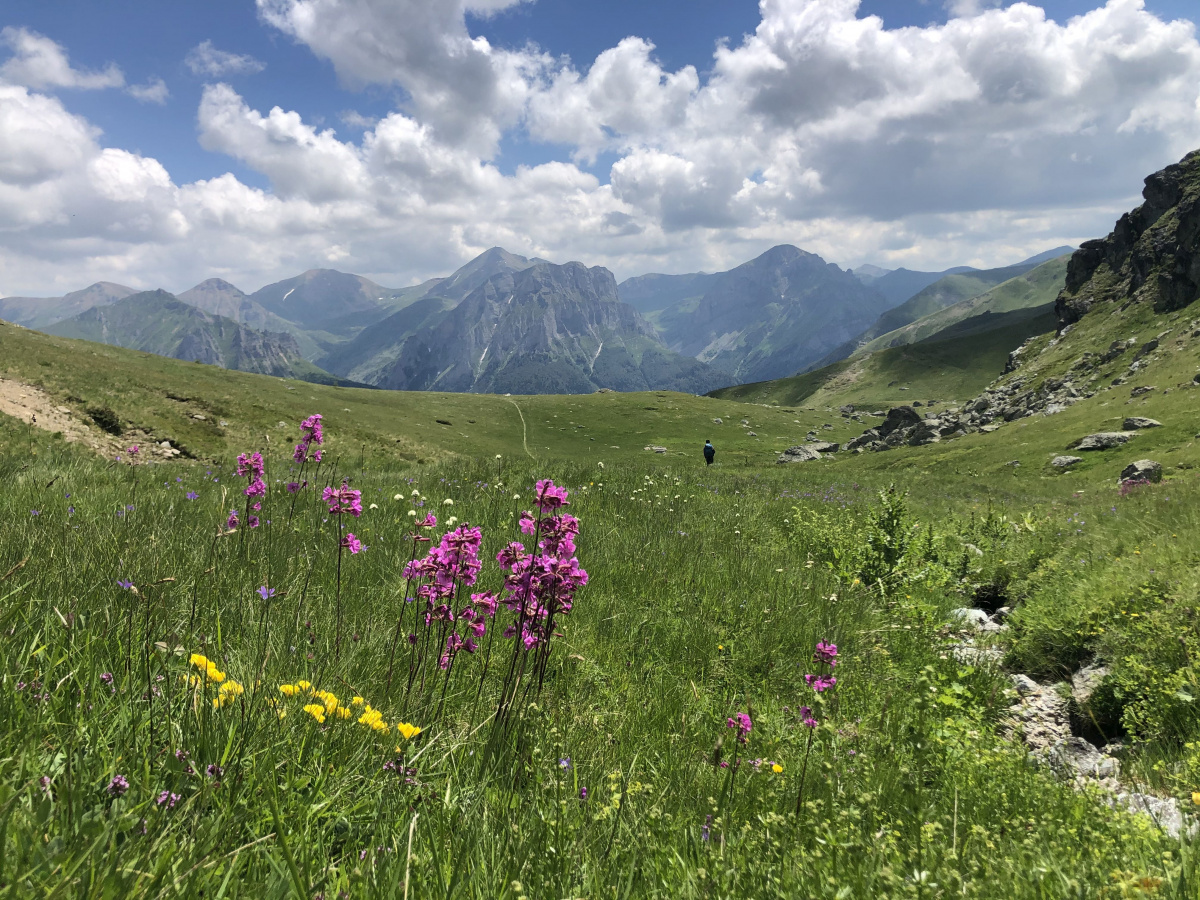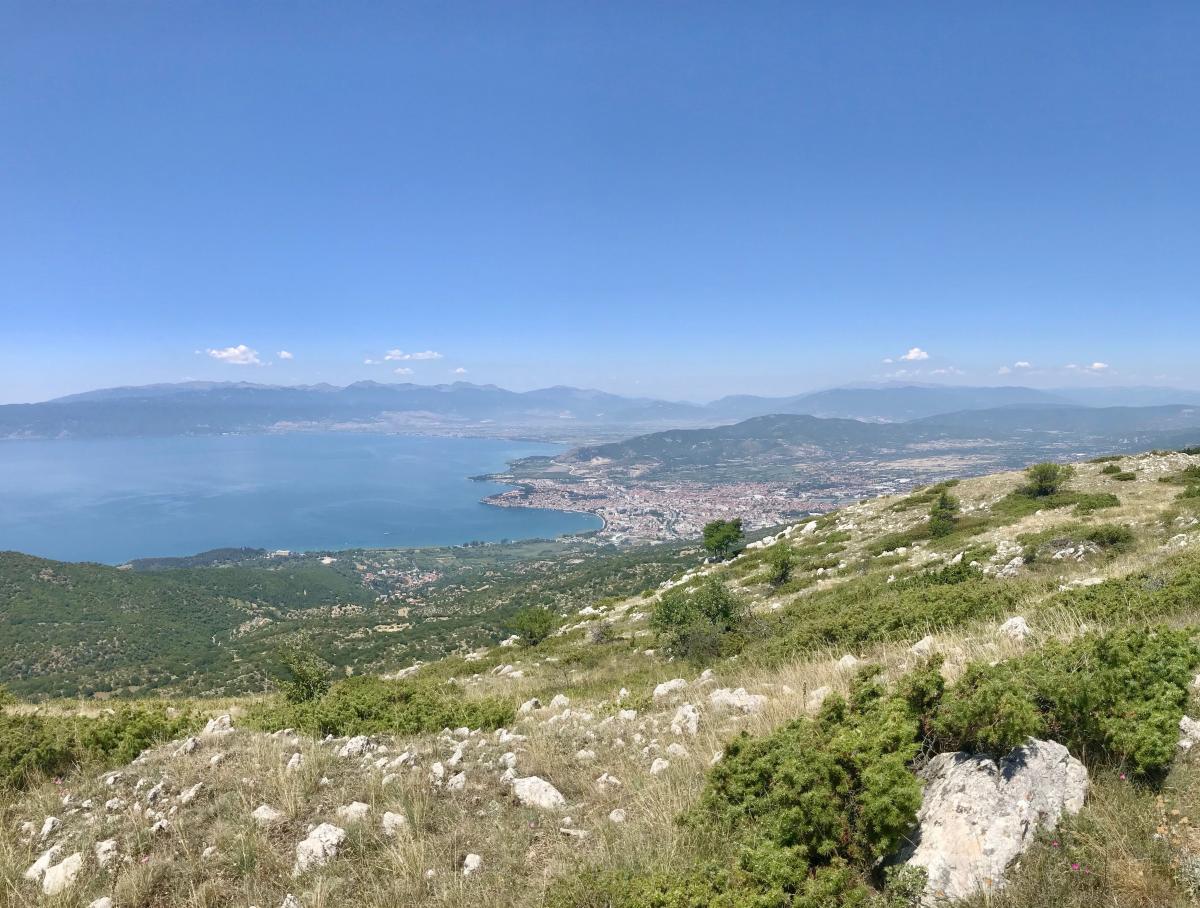Encouraging commitment for Lake Ohrid re-proclamation
Mayors of Ohrid, Struga and Debarca officially agreed today on the way forward when it comes to the management of Lake Ohrid in North Macedonia, the oldest and one of the most biodiversity rich lakes in Europe. By signing a joint statement, they committed to support the re-proclamation of Lake Ohrid as a Monument of Nature.

Ohrid Lake Municipalities’ signing ceremony of the Statement of support for Ohrid Lake Valorization Study
Photo: Ministry of Environment and Physical Planning of North Macedonia
“The study for the valorization of the Monument of Nature - Lake Ohrid was submitted to the municipalities of Ohrid, Struga and Debarca to be adopted by their council and officially submitted to us for the initiation of the procedure for re-proclamation of Lake Ohrid as a protected area in accordance with the Law on Nature Protection. But in our mission, the only way to achieve this goal is joint action, through the establishment of good cooperation and coordination of local self-governments. For that reason, I encourage the mayors of the municipalities of Ohrid, Struga and Debarca to sign today's joint statement in support of the re-declaration of Lake Ohrid as a Monument of Nature, which will symbolically confirm their readiness to cooperate,“ said Naser Nuredini, Minister of Environment and Physical Planning of North Macedonia. Minister Nuredini used this occasion to hand over the Ramsar Convention certificate to the Mayors of the three municipalities.
“A common vision of three municipalities around Lake Ohrid in North Macedonia is key to achieving effective management of the lake and the protection of its outstanding natural values,“ said Boris Erg, Director of the IUCN Regional Office for Eastern Europe and Central Asia. In recent years, reputable national and international conservation organisations have led numerous research-based activities in and around Lake Ohrid. The resulting wealth of information and subsequent datasets have been integrated into the Valorisation Study for Lake Ohrid, in a process led by IUCN. “I would like to thank the Ministry of Environment and Physical Planning of North Macedonia, the Municipalities of Ohrid, Struga and Debarca, as well as the civil society organisations, for the support and cooperation provided throughout the redaction of the Valorisation Study for Lake Ohrid. Besides contributing with the detailed technical knowledge, their engagement proves a deep sense of commitment towards the aims of the Study,” concluded Erg.
The overall aim of nature conservation is to safeguard and sustainably manage ecosystems, habitats, wildlife species and their populations. By endorsing the integrated scientific knowledge of the values of Lake Ohrid, the relevant authorities and the civil society organisations agree on a joint departure point that will allow for efficient management going forward. The redaction of the Valorisation Study for Lake Ohrid was developed through a consultative process led by IUCN ECARO and Dr Daniel Bogner as biodiversity and capacity-building technical expert. As a next step, in support of the re-proclamation process, the Municipality of Ohrid will present the Study to the Ohrid Municipality Council for approval and subsequent submission to the Ministry of Environment and Physical Planning of North Macedonia.
 Ohrid Lake Municipalities’ signing ceremony of the Statement of support for Ohrid Lake Valorization Study
Photo: Ministry of Environment and Physical Planning of North Macedonia
Ohrid Lake Municipalities’ signing ceremony of the Statement of support for Ohrid Lake Valorization Study
Photo: Ministry of Environment and Physical Planning of North Macedonia
Today’s signing ceremony was organised by the IUCN Regional Office for Eastern Europe and Central Asia which has coordinated the development of the Valorization Study for Lake Ohrid as part of the project "Achieving Biodiversity Conservation through the creation and effective management of protected areas and the integration of biodiversity in land use planning", funded by the Global Environment Facility (GEF) and implemented by the United Nations Environment Programme (UNEP) Vienna Regional Office in close partnership with the Ministry of Environment and Physical Planning of North Macedonia.



